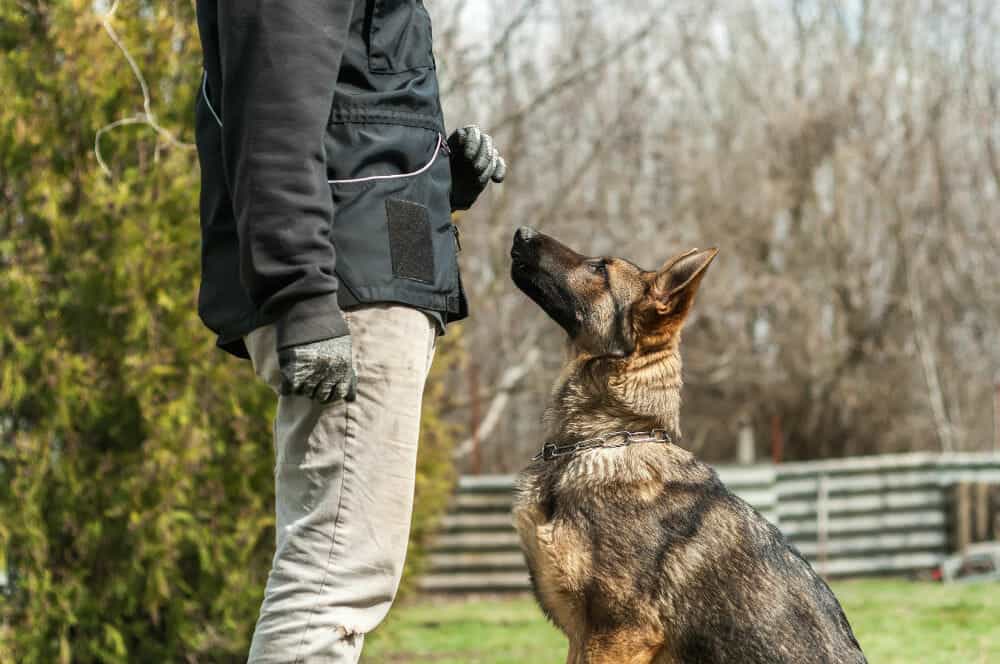The Benefits of Selecting Dog Training Near Me for Tailored Solutions
Unlock Your Canine's Prospective: Proven Pet Dog Training Methods for Success
Effective pet dog training is a nuanced process that depends upon recognizing canine habits and using clinically backed methods. dog training near me. By incorporating positive reinforcement, establishing clear commands, and focusing on socializing, pet owners can grow an effective partnership with their animals. Nevertheless, difficulties usually develop that need tailored remedies and an individual technique. Exploring these proven approaches reveals not only the potential for behavior enhancement yet likewise the deeper bond that can be formed in between owner and pet dog. What necessary strategies must be considered to absolutely open your canine's potential?
Comprehending Dog Actions
Understanding canine habits is necessary for effective training and fostering a favorable partnership between pets and their proprietors. A detailed grasp of canine body language, vocalizations, and social interactions is important for identifying their feelings and needs. Pets connect mostly through non-verbal cues; as an example, a wagging tail might show excitement, while pinned ears can signal anxiety or submission.

In addition, environmental factors play a substantial function in forming a canine's habits. Adjustments in regular, new environments, or the visibility of unknown people can result in anxiety or anxiousness in pet dogs. Recognizing these triggers enables owners to mitigate unfavorable reactions and create suitable training techniques.
Ultimately, a deep understanding of canine actions lays the structure for effective training techniques, improving both actions and the total bond in between the canine and its owner. Dog training. This expertise is essential for fostering a well-adjusted, satisfied canine buddy
Positive Support Techniques
Efficient training relies heavily on favorable support strategies, which have been revealed to yield significant results in shaping wanted habits in pet dogs. This strategy entails compensating a canine for exhibiting particular habits, thereby increasing the chance that these actions will certainly be repeated. Benefits can take various types, including deals with, praise, toys, or play, relying on what inspires the private canine.

It is necessary to gradually phase out incentives as the pet dog learns the actions, transitioning to intermittent reinforcement. This strategy maintains the habits gradually while preventing reliance on continuous rewards. By focusing on positive reinforcement, trainers can cultivate a relying on connection with their canines, advertising a healthy and cooperative training setting that boosts overall obedience and efficiency.
Establishing Constant Commands
A basic aspect of successful canine training is the establishment of regular commands. Consistency in commands is essential for efficient interaction in between the pet dog and the fitness instructor. When commands are uniform, dogs discover to connect details words with preferred habits, which increases the training procedure and enhances understanding.
To develop constant commands, it is essential that all household members make use of the exact same terms and gestures. If one person makes use of "sit" while another states "rest down," it can create complication for the dog. Select Clicking Here clear, distinct words for commands and make certain everybody associated with the canine's training complies with these selections.
Reinforce commands via constant method, making sure that the canine obtains enough possibilities to respond correctly. When a canine efficiently complies with a command, prompt positive support must follow.
Last but not least, hold your horses. Establishing regular commands requires time and effort. With dedication and clearness, you will assist your pet dog establish a strong understanding of assumptions, inevitably bring about a well-behaved companion.
Socialization and Direct Exposure
Socializing a pet dog is important for promoting a well-adjusted and confident pet grooming training courses companion. This procedure entails exposing your dog to a range of atmospheres, people, and various other animals to establish their social abilities and adaptability. Early socialization, preferably between the ages of three to fourteen weeks, is essential, as it prepares for a dog's future behavior.
Throughout socialization, objective to give favorable experiences in various settings, such as parks, busy roads, and homes with various other pet dogs. Introduce your canine to various stimuli, consisting of sounds, sights, and smells, guaranteeing that each experience is rewarding. This direct exposure aids reduce anxiety and anxiety, leading the way for a more resistant dog.
Engaging in controlled team play sessions with other canines can also boost social skills, instructing your family pet ideal interactions and limits. Focusing on socialization will dramatically add to your dog's general joy and actions throughout their life.
Overcoming Common Training Challenges

Another regular issue is diversion. Canines might battle to concentrate in unfamiliar or active settings. Progressively desensitize your pet to disturbances by beginning training in a peaceful setting and slowly presenting even more stimulations as they come to be proficient (dog training charlotte nc). Favorable support strategies, such as treats and praise, can maintain motivation and focus.
In addition, behavioral concerns like leaping or extreme barking can come to be aggravating. Address these by teaching alternate actions, such as sitting calmly when welcoming guests. Consistency and perseverance are critical; enhance wanted habits consistently and prevent scolding, which can lead find out to confusion.
Lastly, identify that each dog is one-of-a-kind, and training timelines may differ. Tailor your technique to your pet's specific needs, and look for expert support if needed. With perseverance and the best techniques, overcoming these obstacles can bring about a trained, satisfied canine companion.
Conclusion
In verdict, unlocking a dog's potential requires a comprehensive approach that includes an understanding of canine actions, the application of positive reinforcement strategies, and the establishment of consistent commands. Early socializing and direct exposure to varied environments even more boost a canine's flexibility and confidence. By dealing with typical training challenges with customized approaches and perseverance, a participating and harmonious connection between pet and handler can be fostered, inevitably resulting in a mannerly friend capable of thriving in numerous scenarios.
Effective dog training is a nuanced procedure that hinges on comprehending canine actions and utilizing scientifically backed approaches.Comprehending dog actions is vital for effective training and promoting a favorable connection in between pet dogs and their owners.Reliable training relies greatly on positive support methods, which have been shown to yield considerable results in forming desired actions in canines. When commands are consistent, pet dogs find out to associate details words with wanted habits, which increases the training process and improves understanding.
In conclusion, unlocking a canine's possible demands an extensive technique that includes an understanding of canine actions, the application of positive reinforcement techniques, and the establishment of regular commands.